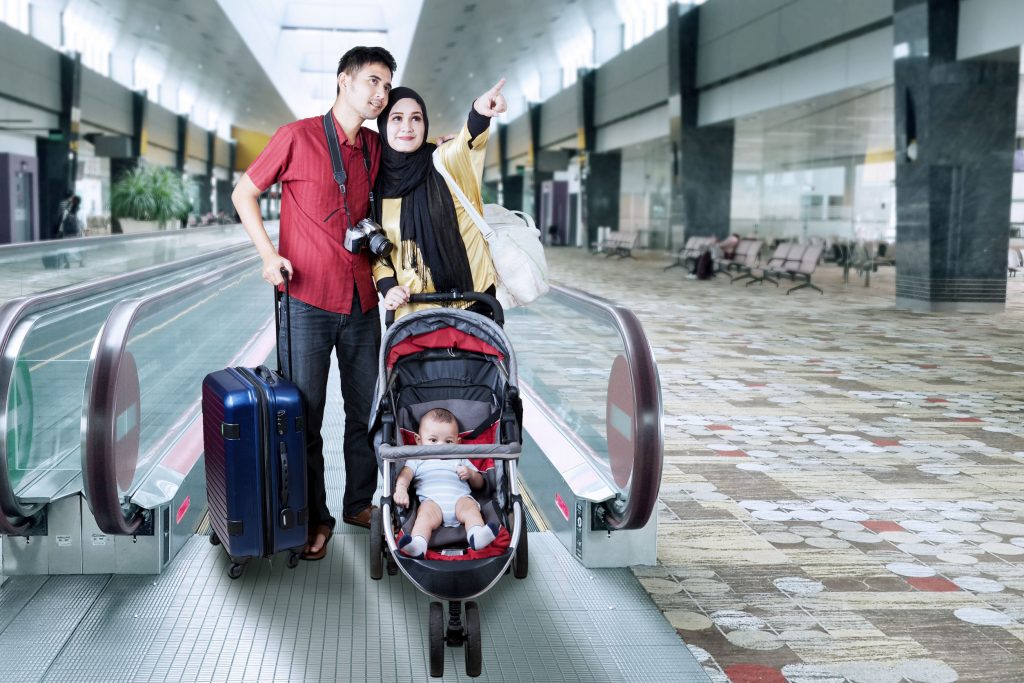
In February, the American Civil Liberties Union, together with the Northwest Immigrant Rights Project, filed a lawsuit against President Trump and other government entities, claiming that they prevented thousands of people, applying for residency, citizenship and asylum, from entering the country. And last month, Richard Jones, a U.S. District Judge in Seattle, affirmed the request for a class action suit against the US government, while rejecting the DOJ’s entreaty to throw out the case. According to the complaint, the government has been utilizing the Controlled Application Review and Resolution Program (CAARP) to keep people from mostly-Muslim countries out of the US, going well beyond the congressionally imposed limits of that program.
Egregious Actions
According to a report compiled by the ACLU, since 2008, the government has stalled applications submitted by individuals who traveled to Muslim-majority countries. And other people have been kept out for merely donating to Muslim charities. Most, if not all, applicants have been kept in the dark regarding the status of their applications. Additionally, BuzzFeed reported in 2015 that the CAARP was used to slow-down the entry of Syrian refugees.
Brief Background
The CAARP’s purpose, according to the US Customs and Immigration Services (USCIS), is to ensure that individuals applying for USCIS benefits don’t pose any serious national security risks. In actuality, it “imposes extra-statutory rules and criteria to delay and deny immigration benefits to which applicants are entitled,” according to the complaint.
Though the program was launched in 2008, it wasn’t until 2012 that an immigration officer let it slip during another lawsuit that the review program existed. Since then several Freedom of Information Act (FOIA) suits have been filed in order to pressure the USCIS to disclose pertinent documents.
Other lawsuits have failed because, once claims are filed, the government fast-tracks the plaintiffs’ applications, rendering the suit moot. The same thing happened after the ACLU filed claims in February. Luckily, the judge allowed the case to move forward on behalf of all the other applicants being held up by the CAARP and other “extreme vetting” programs.
The Plaintiffs
On February 1st, not long after President Trump first signed the Travel Ban Order, Abdiqafar Wagafe and Mehdi Ostadhassan filed a suit against the government with the help of the ACLU and the NIRP. Ostadhassan, whose green card application was stalled for nearly three years, had this to say shortly after filing the suit: “This ban seeks to shut me out of the United States simply because of my religion and my nationality, but my life and my future is here.” He continued, “This ban goes against everything I have known the United States to stand for. Welcoming immigrants is part of the American tradition. I have experienced this myself.”
Abdiqafar Wagafe, the other plaintiff, is a Somali citizen whose naturalization application was approved five days after the suit was filed. And a month after that, he became a US citizen. He had waited 3 and a half years prior to filing the complaint. Officially, applications are to be processed within six months.
Preventative Measures
According to the suit, “By creating additional, non-statutory, substantive criteria for adjudicating immigration applications, CARRP and any successor ‘extreme vetting’ program violate the INA, Article I of the Constitution, and the Due Process Clause.” Thus, plaintiffs seek to prevent similar programs from cropping up in the future. It should be noted, however, that the judge dismissed the due process claim in his order.
Government’s Response
The government stated in its motion to dismiss that the CAARP is a totally legitimate program for running background checks on immigrants. “It is a way for USCIS to investigate and verify information in certain cases, and to ensure reasoned decisions,” contended the DOJ.
It’s unclear how the Supreme Court’s pending travel ban decision would affect this suit. In his court order, Judge Jones called the executive order “a non-issue” because of the court decisions blocking the ban, but that was before the highest court partially stayed those rulings.
Looking forward, a verdict in favor of the plaintiffs could be a major victory for all those currently stuck in the immigration machinery of the United States.



Leave a Comment